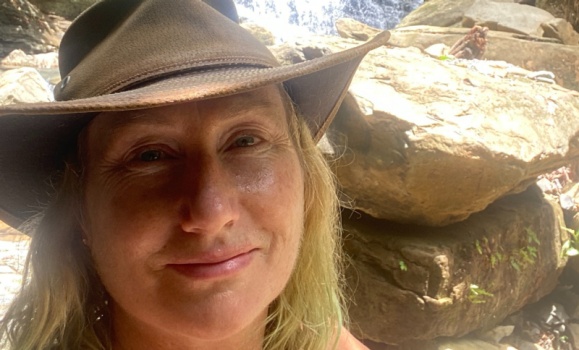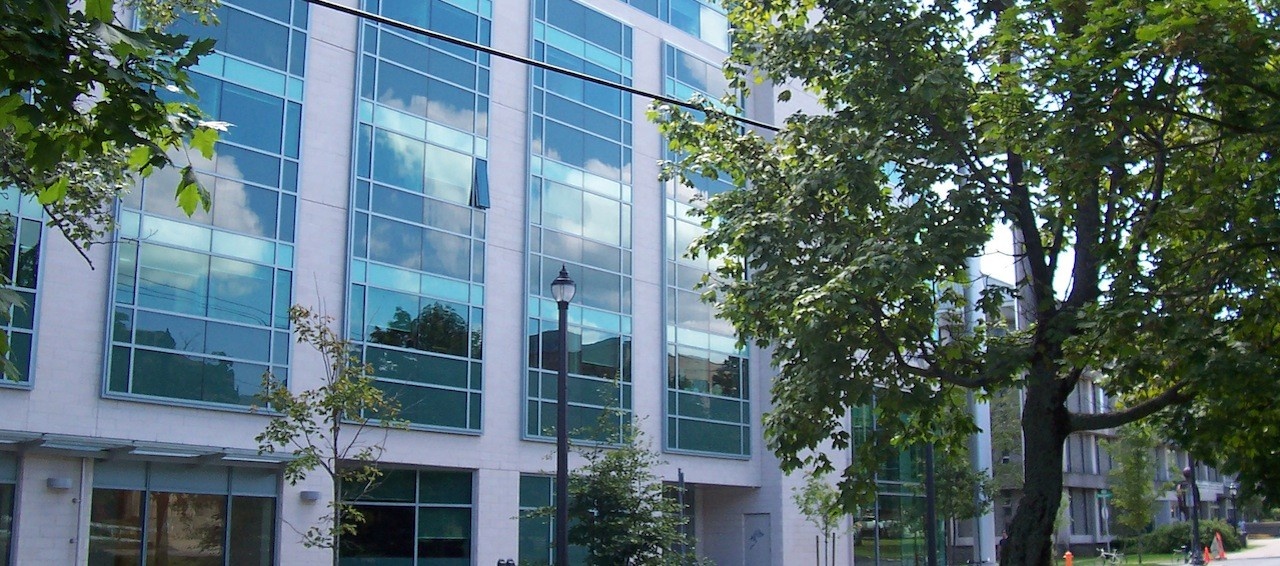News
» Go to news mainDr. Michelle Adams and the Role of SRES in Environmental Sustainability

In the realm of environmental studies, interdisciplinary research is paramount to devising effective solutions to complex global issues. Dr. Michelle Adams, a professor at the School for Resource and Environmental Studies (SRES) at Dalhousie University, embodies this interdisciplinary ethos through her extensive work on the sustainability of industrial systems. Dr. Adams' unique career trajectory and her contributions to the field highlight SRES's essential role in fostering impactful research and preparing the next generation of environmental leaders.
Dr. Adams' journey into environmental sustainability began in an unconventional setting—the military. Her early experiences, particularly witnessing the negative environmental impacts of military operations, sparked a profound interest in sustainability. "I remember I was on an American ship and they simply dropped their garbage off the stern of the boat. All you could see were dozens and dozens of these floating orange garbage bags," she recalls, highlighting a pivotal moment that underscored the need for better environmental practices.
Following her military service, Dr. Adams transitioned to environmental site assessments and remediation projects, primarily former military bases in the Canadian Arctic. These experiences exposed her to the dire consequences of industrial pollution and the critical need for preventive measures. "We need to not create these contaminated sites in the first place," she emphasizes, marking her shift towards pollution prevention and clean technology.
Dr. Adams' research focuses on the sustainability of industrial systems, with a particular emphasis on the clean energy transition and circular economy. "My research focus is and always has been the sustainability of industrial systems," she states. This involves examining how industrial processes can be decoupled from environmental degradation, thereby enabling sustainable economic growth.
Her current projects include developing grant proposals aimed at exploring the future of the forest sector in Nova Scotia and investigating the use of biomass and related wastes to create novel value-added products. "Circular economy and clean technology go hand in hand because it's about how we derive the materials and energy we need for our systems," she explains. By treating industrial systems as ecosystems, Dr. Adams seeks to maximize efficiency and minimize waste, drawing inspiration from natural processes where nothing is wasted.
Dr. Adams employs a multi-method approach in her research, integrating both technical and social dimensions. "I'm a people-centered techno person," she describes, emphasizing the importance of understanding societal needs and values in technological decision-making. This approach contrasts with traditional engineering mindsets that often prioritize technical solutions over social acceptance and uptake.
One of her key methodologies is the development of sustainability assessment frameworks. These frameworks go beyond lifecycle analysis to incorporate social, economic, and environmental factors, providing a holistic view of sustainability. "There’s more to the world than academics and carbon," she jokingly asserts, highlighting the need to consider broader societal impacts, such as job loss and community well-being.
Dr. Adams' work has had significant practical applications, influencing government policies and industry practices. For instance, her involvement with the Eco-Efficiency Centre led to the development of a greenhouse gas calculator for small and medium-sized businesses—a tool that, despite its early introduction, was ahead of its time. "We were doing carbon calculations for small and medium-sized enterprises in 2008," she notes, underscoring her long-standing commitment to practical, applied research.
Her contributions also extend to the renewable energy sector. Dr. Adams co-authored the report that helped lead to Nova Scotia's Renewable Electricity Act, demonstrating the tangible impact of her research on policy development. This blend of academic rigor and practical application is a hallmark of her work and reflects the ethos of SRES.
Dr. Adams joined SRES in 2008, bringing her extensive consulting experience into the academic fold. She highlights the unique environment at SRES that supports diverse research approaches and encourages innovative thinking. "The biggest thing I think SRES gives you is collegiality and considerable freedom," she says. Unlike other units that can have rigid funding and publication requirements, SRES values practical, problem-solving research that has real-world impact.
This supportive environment allows faculty to pursue diverse interests and engage in applied research. "If you’re doing interesting work, you’re publishing, and you’re having an impact, then ‘go with God’ as they say," Dr. Adams describes, emphasizing the flexibility and encouragement she has found at SRES. This approach not only benefits faculty but also creates a dynamic learning environment for students.
For students considering further studies in environmental fields, Dr. Adams underscores the interdisciplinary and applied nature of SRES programs. The school's long history and diverse alumni network provide a strong foundation for academic and professional success. Historically, SRES has been ahead of the curve, and she believes this trend positions them ideally to continue being leaders into the future.
SRES offers both course-based and thesis-based master's programs, catering to different learning preferences and career goals. This comprehensive educational framework equips students with the skills and knowledge needed to make significant contributions in various sectors, including industry, government, and academia.
Dr. Michelle Adams' career at SRES exemplifies the power of interdisciplinary research and the significant impact that applied environmental studies can have on policy and industry. Her work on the sustainability of industrial systems advances academic understanding and drives practical solutions to global environmental challenges. As SRES continues to nurture innovative thinkers and problem solvers, it remains a vital institution for shaping a sustainable future.
Recent News
- Dr. Andrew Medeiros named Fulbright Canada Chair in Arctic Studies
- Simon‑Luc Noël's (MES Graduate) Thesis Blog Entry Live on EIUI Website
- shalan joudry’s (MES Graduate/IDPhD Candidate) Directorial Debut to show at TIFF
- Exploring Environmental Social Science: An Interview with Dr. Kate Sherren
- Dr. Andrew Medeiros: Exploring the Frontiers of Freshwater Ecology
- A Profile of Professor Emeritus Karen Beazley
- Dr. Michelle Adams and the Role of SRES in Environmental Sustainability
- Supporting Excellence: Behind the Scenes at SRES
